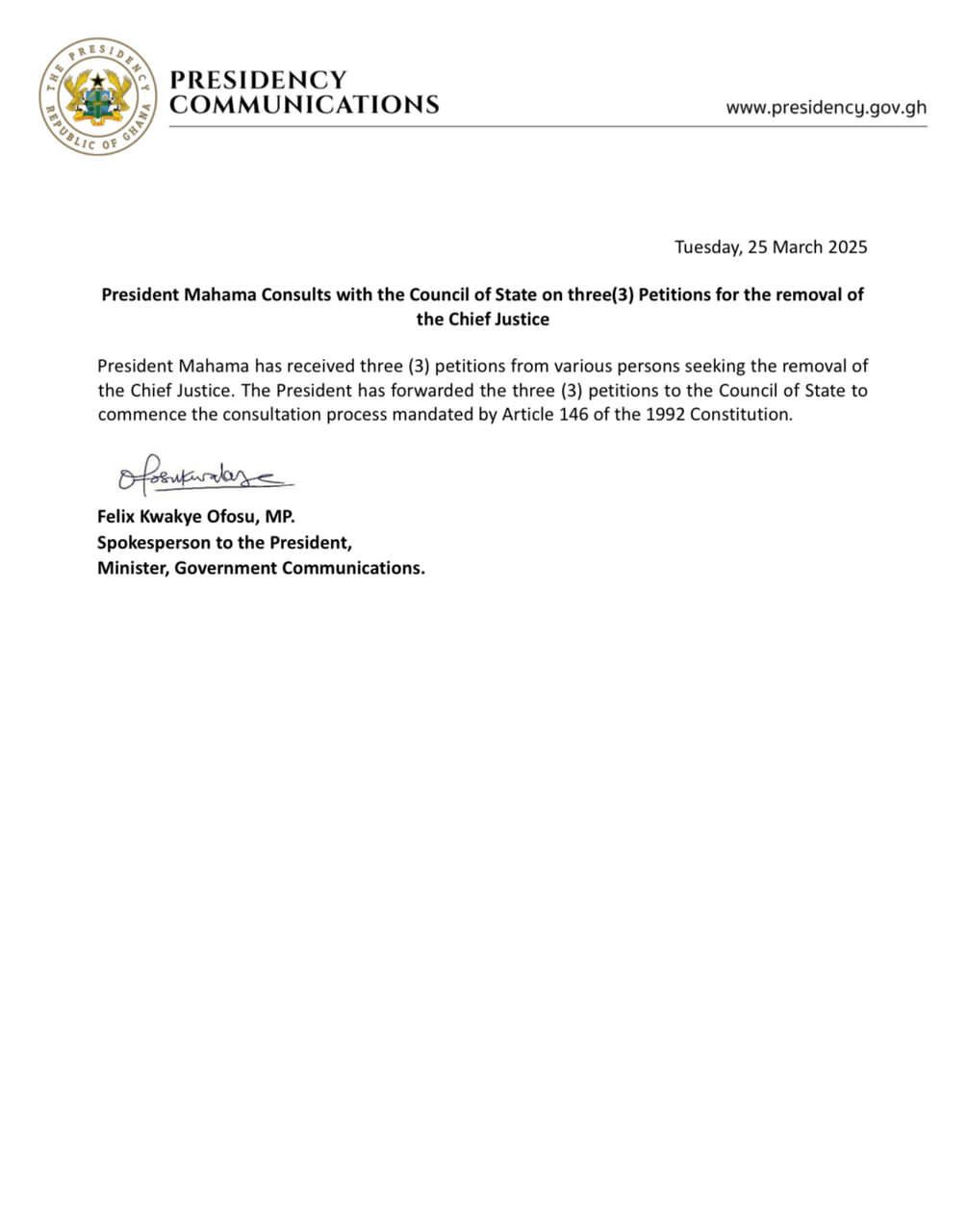President John Mahama has initiated consultations with the Council of State regarding three petitions calling for the removal of the Chief Justice, Gertrude Araba Esabaa Sackey Torkonno.
The petitions, submitted by various individuals, have been forwarded to the Council of State as mandated by Article 146 of the 1992 Constitution.
This was announced in a statement issued by Felix Kwakye Ofosu, MP, Spokesperson to the President and Minister for Government Communications.
This is not the first attempt to remove Chief Justice Torkornoo. Earlier this year, former President Nana Akufo-Addo dismissed a similar petition filed by Prof. Stephen Kwaku Asare, citing a lack of merit.

That petition accused the Chief Justice of misconduct and incompetence, specifically alleging irregularities in panel reconstitution, the issuance of practice directions, and constitutional breaches.
However, after consulting the Council of State, the former President ruled that the claims failed to establish a prima facie case warranting further investigation.
The removal of a Chief Justice is governed by Article 146 of the 1992 Constitution, which stipulates that a Justice of the Superior Court can only be removed for stated misbehaviour, incompetence, or incapacity due to infirmity.
The law requires that when such a petition is received, the President must act in consultation with the Council of State to appoint a committee to investigate the allegations.
This committee must include two Justices of the Supreme Court, one of whom serves as chairman, as well as three other individuals who are not members of Parliament, the Council of State, or the legal profession.
The committee is mandated to investigate the allegations and make recommendations to the President.
If a petition is referred to a committee, the President may also suspend the Chief Justice upon the advice of the Council of State.
With President Mahama officially referring the petitions to the Council of State, the legal and political landscape surrounding the Chief Justice’s tenure now hinges on the committee’s findings. If the committee recommends removal, the President will be required to act accordingly.
This unfolding situation is expected to generate intense debate within Ghana’s legal and political circles as stakeholders await the Council of State’s decision.





